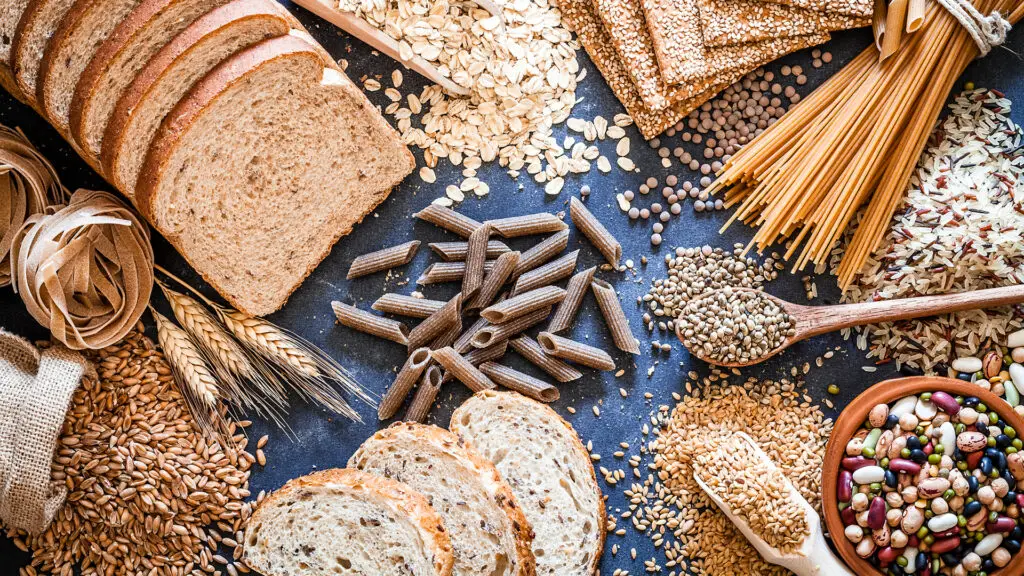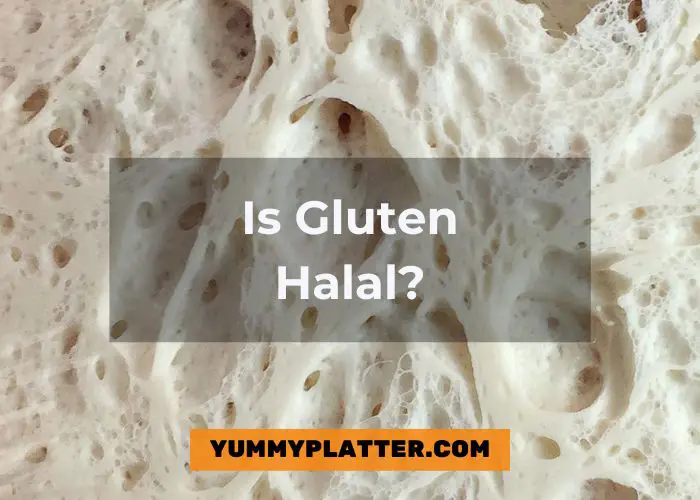Figuring out if is gluten halal is a question that many people who follow Islamic dietary laws might ask. Gluten is a kind of protein found in some grains, like wheat, barley, and rye. It’s what makes dough stretchy and gives bread its soft texture. The word “halal” means permitted or allowed in Islam. So, when we’re looking at gluten and asking if it’s halal, we’re really wondering if it fits within the rules of what can be eaten according to Islamic law.
However, the halal status of a food isn’t just about the gluten. It also depends on other ingredients and how the food is prepared. For instance, if gluten-containing food also has alcohol or ingredients derived from forbidden sources, then it wouldn’t be halal. It’s important for people who eat halal to check the ingredients of foods to make sure everything is in line with their dietary guidelines. This article will lead us to a deeper discussion about gluten and halal dietary practices.
What is Gluten?
Gluten is a composite of proteins, primarily glutenin and gliadin, found in grains such as wheat, barley, and rye. It’s responsible for the elasticity and texture of dough, allowing bread and other baked goods to rise and maintain their shape. Gluten provides a chewy texture and is pivotal in the baking industry. In the diverse spectrum of dietary concerns, gluten sensitivity emerges as a notable challenge affecting a significant portion of the population.
Unlike celiac disease, which can be diagnosed through specific medical tests, gluten sensitivity often treads a nebulous path, with symptoms that can vary widely from person to person. Individuals grappling with this condition may experience a range of discomforts, from abdominal pain and bloating to fatigue and headaches, often without clear indicators from standard medical examinations..
How Gluten is made?
The formation of gluten begins when flour mixed with water activates two key proteins, glutenin and gliadin. As the dough is kneaded, these proteins bind to form gluten, a stretchy and elastic substance. This process involves several steps: firstly, mixing the flour and water to hydrate the proteins, and then kneading or working the dough to encourage the glutenin and gliadin to link together, creating the gluten network. This network is essential for trapping air and gases during fermentation, which contributes to the dough’s rising and results in the chewy texture of baked goods. The strength and elasticity of the gluten formed are pivotal in determining the quality and texture of the final product.
Gluten vs Gelatin
In comparing gluten and gelatin from a halal perspective, it’s important to note the distinct sources and dietary considerations each substance entails. Gluten, which is derived from plants such as wheat, barley, and rye, is generally considered halal across the board. This is because it comes from non-animal sources and does not involve any prohibited processing methods, making it suitable for consumption according to Islamic dietary laws.
Gelatin, on the other hand, presents a different scenario. It is typically produced from animal by-products, specifically collagen from the bones, skin, and connective tissues of animals like cows and pigs. The halal status of gelatin is contingent on the animal source and the method of slaughter.
Gelatin from animals not slaughtered according to Islamic guidelines or from prohibited animals (such as pigs) is not considered halal. The ambiguity surrounding the animal source and slaughter method often places gelatin in a questionable category for those adhering to halal dietary laws, unless it is explicitly certified as halal or derived from a permissible source.
Thus, while gluten is universally accepted as halal due to its plant origin, the acceptability of gelatin is dependent on its source and the Islamic compliance in its production process.
Also Read: Is Kimchi Halal?
Is Gluten safe?
This protein plays a key role in giving bread its elasticity and cakes its softness. For most individuals, including gluten in their diet, does not pose any health risks. It is a common element in various foods and contributes to the texture and taste that many enjoy. However, it’s essential for consumers to be mindful of their body’s reactions to gluten and adjust their diets accordingly, ensuring a balanced and nutritious intake.

So Gluten is halal then?
Gluten, when sourced from plants, is considered halal and permissible for consumption according to Islamic dietary laws. This is because plant-based gluten, found in grains such as wheat, barley, and rye, does not involve any animal products or by-products, making it inherently acceptable under halal guidelines.
On the contrary, gluten derived from animal sources, if any, would be classified as haram if the animals are not slaughtered according to Islamic principles or are of a type forbidden by these laws. However, it’s important to note that gluten is primarily obtained from plant sources and the notion of animal-sourced gluten is not commonly applicable in food production. Therefore, in general, gluten as commonly encountered in food products is halal and safe for consumption by those following a halal diet.
When can Gluten be haram?
As you are informed from the above details, Muslims are not allowed to consume gluten that has been taken from haram sources like beef and pork.
This is due to the fact that any product that contains components that come from an illegal source (such as a pig or not properly slaughtered beef) is deemed haram in Islam.
FAQs
Can gluten ever be considered haram?
Gluten itself, being a protein found in certain grains, is not inherently haram. However, if gluten is somehow derived from an animal source that is not slaughtered according to Islamic law or from forbidden animals, it would be considered haram. It’s important to note that gluten is typically sourced from plants, making this scenario highly unlikely.
How can I ensure the gluten in my food is halal?
To ensure the gluten in your food is halal, check the product labels for halal certification or information regarding the source of gluten. Gluten in foods like bread, pasta, and baked goods is usually from plant sources and thus halal. For added assurance, look for products specifically labeled as halal.
Are there any special considerations for gluten in a halal diet?
In a halal diet, the primary consideration for gluten is its source. Since gluten is mostly derived from plant sources, it generally meets halal dietary requirements. However, individuals following a halal diet should still verify the origin of all ingredients in gluten-containing products to ensure compliance with Islamic dietary laws.
Conclusion
In conclusion, gluten, primarily sourced from plants such as wheat, barley, and rye, is considered safe and halal for consumption. For Muslim consumers, it aligns with Islamic dietary laws, making it a permissible ingredient in a halal diet. However, it is always prudent for consumers to check product labels before purchasing.
This practice ensures that the gluten and other ingredients meet halal standards, particularly in processed foods where the source of all ingredients might not be immediately apparent. By staying informed and vigilant about the origins of their food, Muslim consumers can confidently include gluten-containing products in their diets, knowing they adhere to halal dietary guidelines.










Leave a reply